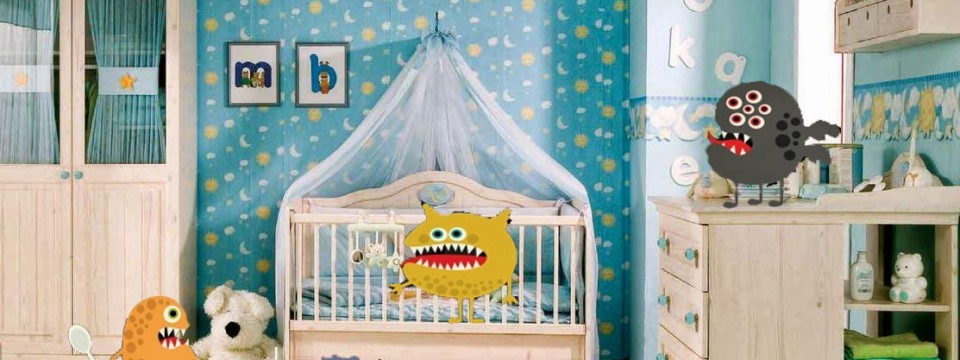
Germs and bacteria can be found virtually anywhere, but when they are in your own home, there are least steps that you can take to reduce their impact.
Here are some common household spots where germs and bacteria can be found lurking, and what action you can take to minimise their risk:
In your kitchen sink:
For those of us who don’t have a dishwasher, our sinks are the perfect breeding ground for germs, since we wash our dirty dishes in it and often forget to clean the interior of the sink itself. Even if you do have a dishwasher, you’ll often rinse items before loading them in the machine, and many germs and bacteria from uneaten food can be transferred to the sink.
Washing your sink thoroughly ever day with bleach and water, should banish any bacteria and kill any germs. Remember to clean the plug, too.
In the bath tub:
You take a bath to clean yourself, so naturally when the ‘dirt’ from your body washes off into the tub, the bath itself can quickly become grubby if not cleaned regularly. Research over the years has shown bath tubs to be carriers of the staphylococcus bacteria, which can be dangerous, so disinfecting your tub at least weekly is very important.
Your toothbrush:
Many of us rinse our toothbrushes after using them, and then pop them back into the holder, soaking wet. The bacteria and germs lurking in most bathrooms will happily go forth and multiply on the bristles of your damp toothbrush, and when you next go to brush your teeth, they are transmitted to you orally. Always remember to rinse and thoroughly dry your brush between uses, and try not to keep it in a closed area or box.
On your salt and pepper shaker:
Studies conducted over the years on salt and pepper shakers in peoples’ homes and in restaurants, found that 41% of those tested, were playing host to the viruses that lead to colds. Wiping your shakers with a damp cloth after every meal should prevent any germs and bacteria from building up on their surface, but washing your hands with soap before you eat, is perhaps the best way of ensuring that germs aren’t transferred.
On your computer keyboard:
Many of us eat while sitting at our computers, not to mention coughing and sneezing while sat at our desks. These germs can quickly attach themselves to the keyboard and then transfer to your hands as you type. Studies have found many computer keyboards to be rife with harmful bacteria such as E. coli and staphylococcus. Again, washing your hands before you use your computer can be vital in protecting you, as can wiping your keyboard with something antibacterial, not forgetting the mouse.
The television remote control:
It’s true to say that any item that people touch frequently can quickly become loaded with germs and bacteria, and the television remote control is no exception. Wash your hands before you settle down in front of the goggle box, or regularly use bleach or alcohol wipes to clean the control.
Hand washing is the sole most effective form of protection against the spreading of germs and bacteria within the home, as is the regular cleaning of household items and areas of your home which are known breeding grounds for germs, such as kitchens and bathrooms.
